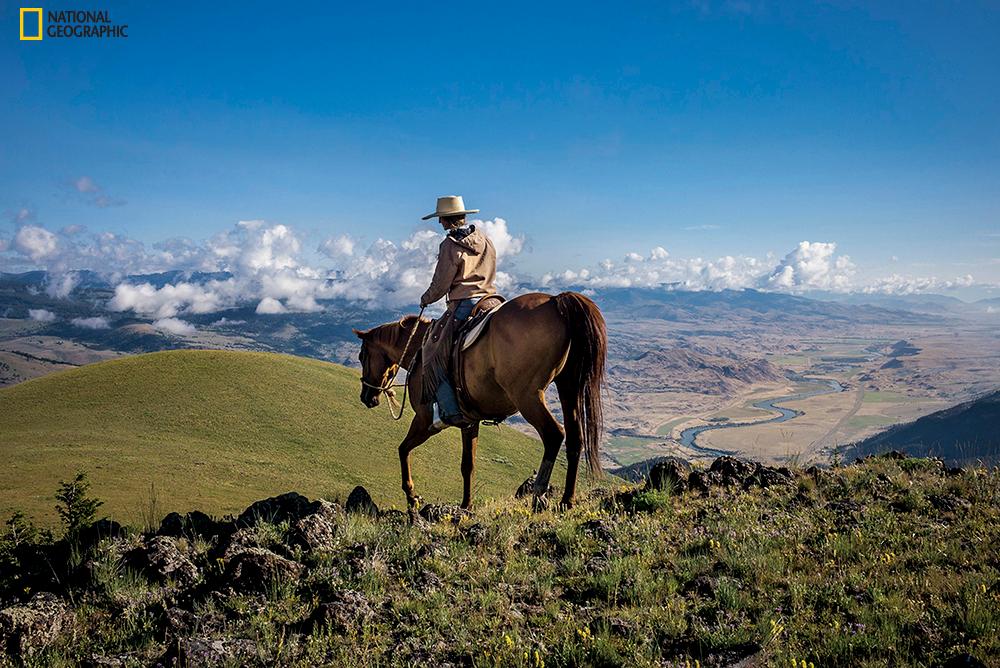
This month's National Geographic magazine asks a provocative question: Who owns the West? The edition takes a close look at competing interests in Yellowstone National Park and raises issues that have clear parallels in Colorado.
David Quammen, the article’s author, spoke with Colorado Matters' host Andrea Dukakis.
On how to protect Yellowstone and Grand Teton:
"The time may be coming where there are some constraints [placed] on not who can visit Yellowstone and Grand Teton and this ecosystem, but the ways in which we can visit it. It may be that driving private automobiles is something that can't continue indefinitely into the future. People need to realize that although Yellowstone Park was founded for the benefit and enjoyment of the people, it is still a finite resource."
On how Yellowstone relates to the rest of the West:
"The Yellowstone ecosystem is the largest area of wild landscape in the heartland of the American West -- in the lower 48 states. It's emblematic of the way we deal with our national parks and our wild landscapes, generally. But it is the signal, the iconic emblem because it is so large that it contains grizzly bears, mountain lions, wolves, black bear, coyotes -- a full complement of species. That makes it both representative of our relationship with nature and very, very special."
On the West's relationship with wolves:
"There is something about wolves that causes a level of polarity, a level of conflict unlike any the other big predatory animals. It's not true of bears, not even true of grizzly bears, certainly not true of mountain lions. But there's something about wolves -- I don't know if it goes back to the mythology of wolves from Europe and the Middle Ages or just what it is. But the people who hate wolves, hate wolves more ferociously then anyone hates grizzly bears or mountain lions."
On the role of big private ranches near Yellowstone:
"We need to remember that those big private ranches perform a great service to the ecosystem by hosting elk populations, and deer population, in some cases pronghorn populations, during the winter months. If those ranches are sold off, subdivided, turned into the suburbs and more sprawl, then we will lose much more than we lose from cattle sharing landscape with elk, wolves and grizzly bears.
On who "owns" the land:
"I asked a Wyoming hunting guide that I spent eight days in the back country with at one point, 'Who owns this place?' And he said, 'Well, the people do. The taxpayers of America.' I asked him, 'Does a wolf hugger in New Jersey own it any less then a hunting outfitter in Cody, Wyoming?' He said, 'Absolutely not. Everybody owns it equally. But the people who live in the ecosystem, the people who live in the West, are the ones who see these issues most acutely, who enjoy the most direct benefits from wildlands and from other public lands and who also pay the price of whatever costs there are to living side-by-side with wild animals.' "
On why Colorado's grizzly bears disappeared:
"It's not that Colorado persecuted its grizzlies more directly than the people of Wyoming and Montana persecuted the grizzlies of Yellowstone. No, it has much more to do with the size of the island that they had to live on. The islands in Colorado just weren't big enough to support a continuing viable population of grizzly bears, so they winked out."
On how people can destroy what they love:
"Everything we do in the outdoors, everything we do in wild landscape, in back country of the Rocky Mountains, I would say, opens our souls and benefits us deeply and and helps us understand life generally and our relationship with the natural world in particular. And yet every time we use these places, we go into these places, there are costs.
"... if we go in and buy land, if we say, 'We love the West so much, we're going to buy our own place' and we buy 200, 300 acres, and we put in a road and put up a cabin, and have a dog and a satellite dish -- then we are changing the landscape. We are destroying what we love."








